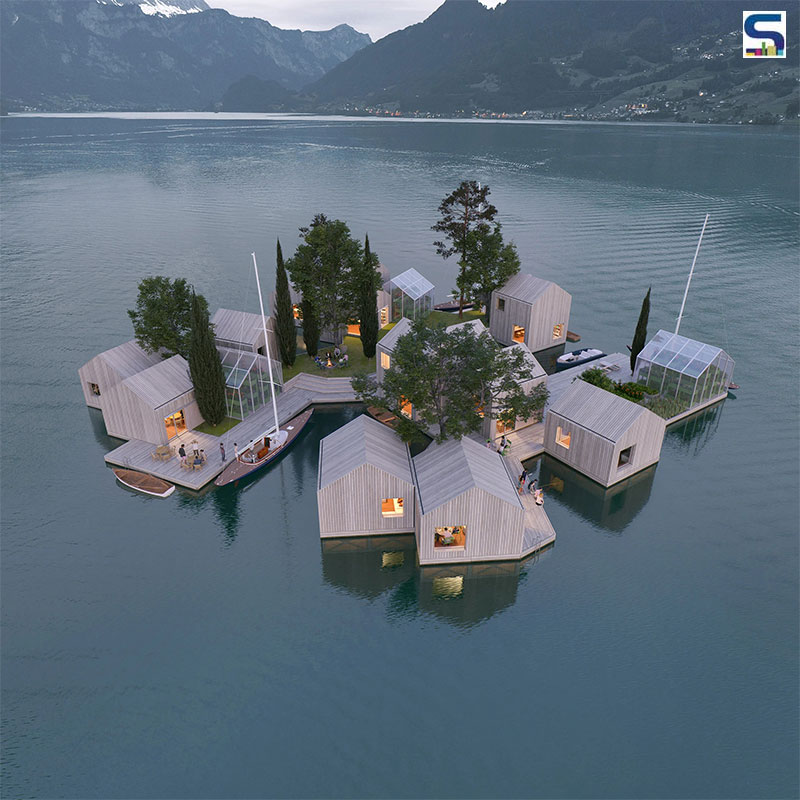
Copenhagen-based architecture studio MAST has designed a system that can help in constructing floating buildings by making them more flexible and sustainable. Dubbed Land on Water, the system comprises modular containers that can be filled with various floatation elements that are similar to gabion cages which are used in the construction industry. Here is a detailed report on SURFACES REPORTER (SR).
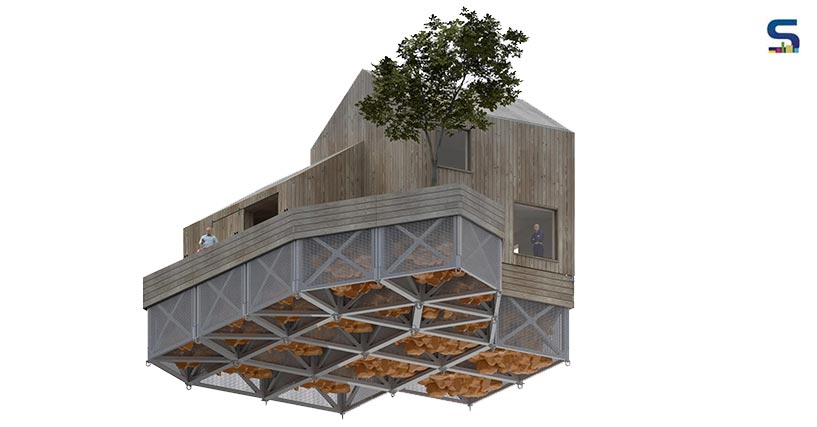 Top: The Land on Water system aims at offering a better underwater environment than existing solutions; Above: The system can be used for building almost anything on the water, right from floating houses to floating campsites and saunas.
Top: The Land on Water system aims at offering a better underwater environment than existing solutions; Above: The system can be used for building almost anything on the water, right from floating houses to floating campsites and saunas.
The rise in urban flooding and sea level rise has pushed many architectural minds to design and build on water. However, with current situations, the use of polystyrene to fill concrete foundations and plastic pontoons is inflexible, difficult to transport and highly unsustainable.
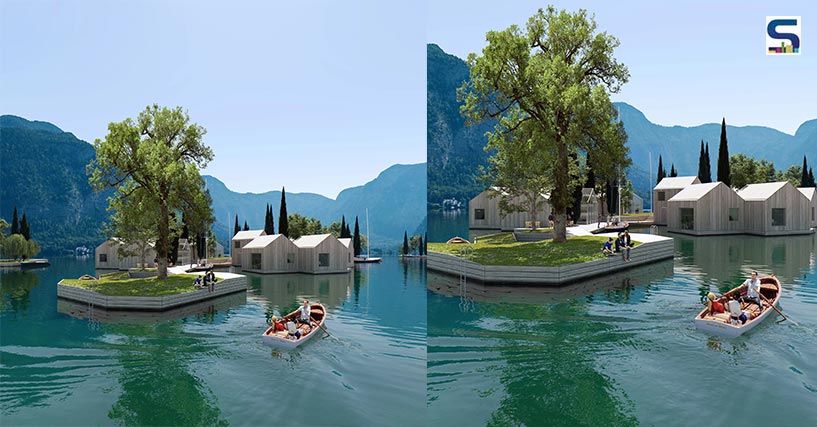 MAST envisioned a system that can create a flat-packed module that is made of recycled reinforced plastic.
MAST envisioned a system that can create a flat-packed module that is made of recycled reinforced plastic.
MAST envisioned a system that can create a flat-packed module that is made of recycled reinforced plastic. These modules can be easily transported around the world and assembled into various configurations to suit any range of building types by offering a secure floating foundation. Additionally, the flat-packed modules are strong and resilient. Sustainable and flexible in nature, the Land on Water system can be used for building almost anything on the water, right from floating houses to floating campsites and saunas.
Land on Water has been inspired by the ancient technology of gabion construction, which utilizes mesh cages filled with rubble to create extremely sturdy, low-cost foundations. With an inverted approach, the team filled the modular cages with locally sourced, upcycled flotation supporting the weight of the structure that is built on top. The system is quite more adaptable than the existing solutions as floatation can be added and adjusted at any time if the weight is added or shifted around above.
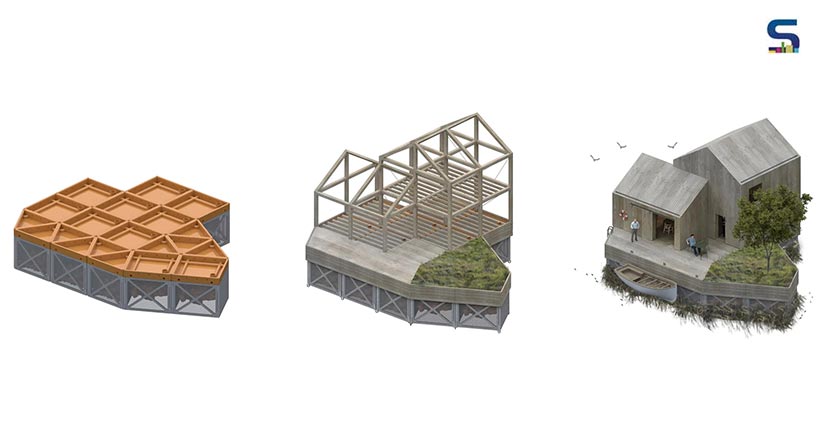
Land on Water has been inspired by the ancient technology of gabion construction, which utilizes mesh cages filled with rubble to create extremely sturdy, low-cost foundations.
The Land on Water system aims at offering a better underwater environment than existing solutions. It ensures the creation of an ideal habitat for fish and crustaceans and an anchor point for molluscs and seaweeds as opposed to steel and concrete foundations that are often treated with toxic anti-fouling paints. It aims to provide a climate-resilient and adaptable solution for the construction of new floating buildings around the world with an entirely new dynamic and organic off-grid floating community by creating an alternative to the large master-planned floating cities that are currently under development.
At present, the firm is developing a prototype of a floating pavilion with the Land on Water system, where the team is looking for partners interested in developing innovative and sustainable floating projects. The prototype will be reportedly presented at the UIA World Congress of Architects that is taking place in Copenhagen in 2023.
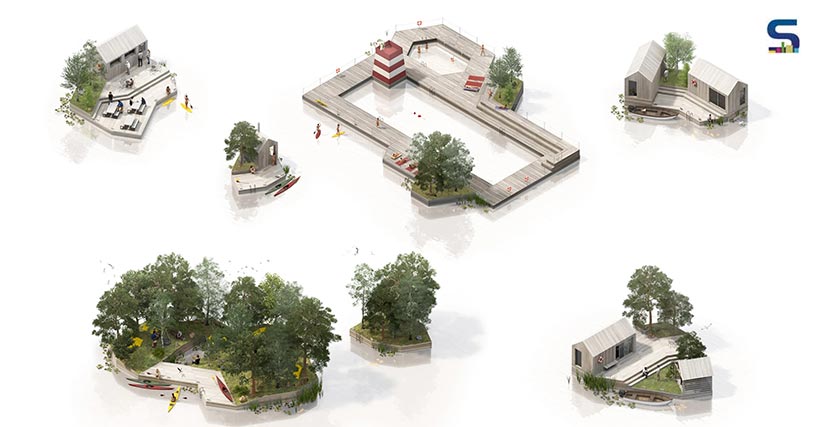
It ensures the creation of an ideal habitat for fish and crustaceans and an anchor point for molluscs and seaweeds as opposed to steel and concrete foundations.
Project details
Category: Construction system, housing
Timeline: Ongoing
Collaborators: Fragile, Hubert Rhomberg
Image credits: MAST